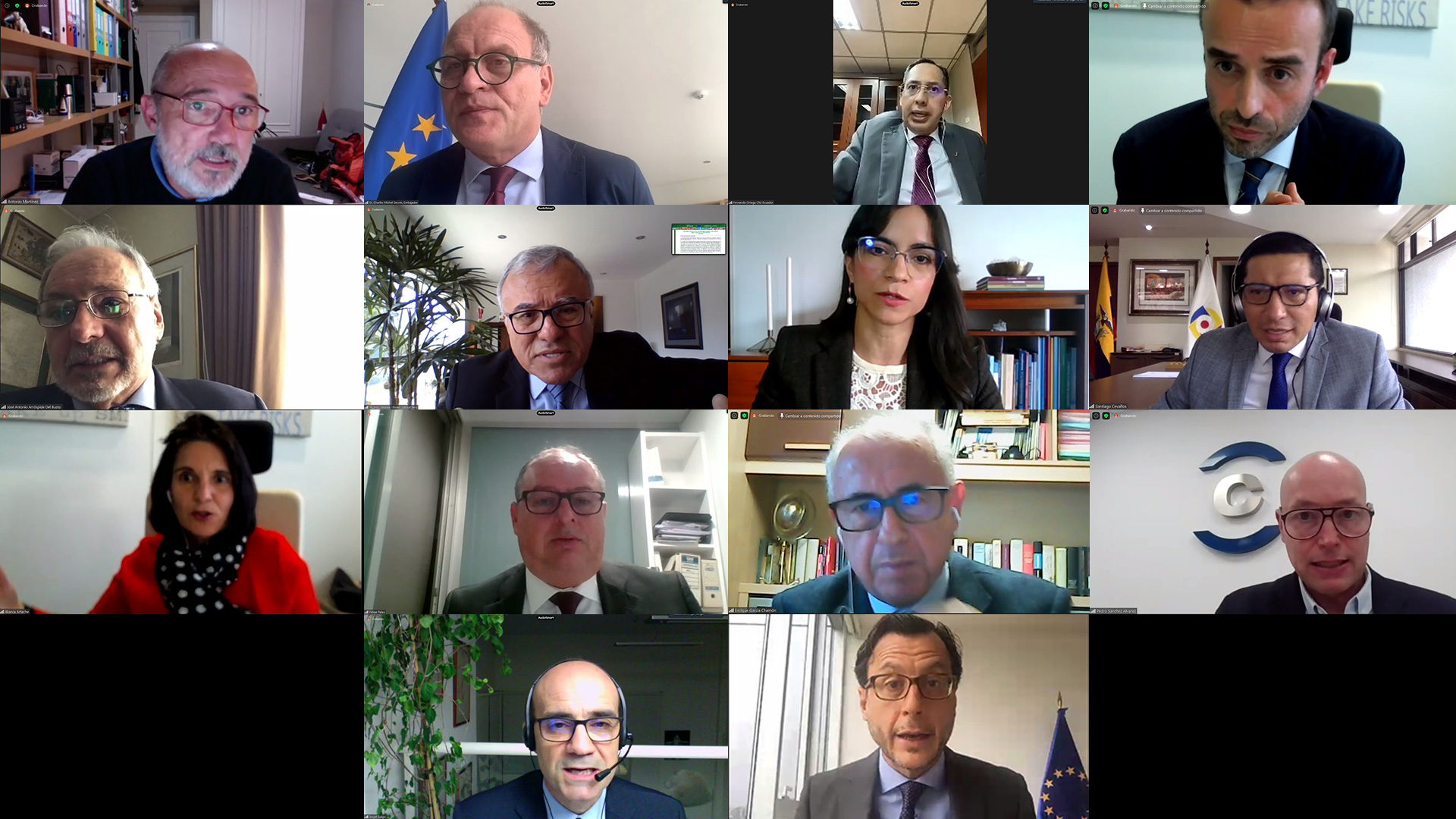Third edition of the IP Enforcement and Governance Week convened experts from Europe and the Andean Community, in online mode
From 14 to 18 December 2020, experts from the Andean Community and the European Union participated online in the third edition of the IP Enforcement and Governance Week, organised by IP Key LA.
This event convened intellectual property rights (IPR) holders, judges, customs officials, officials of IP offices, legal representatives of IPRs, among others, who exchanged a significant amount of enforcement experiences in the framework of the COVID-19 pandemic. Trends were also discussed and best practices in the implementation of IP regulations were presented, with a particular focus on adjustments and changes required by the overall contingency.
The Ambassador of the European Union to Peru, Mr Diego Mellado, stated that ‘Peru and many countries in the region, through cooperation with the EU, are giving greater importance to intellectual property and developing a common practice in the protection of IP rights. In addition, he projected that, in the post-pandemic era, international transactions of goods and services would play an important part in the exit from this crisis, and IP would remain a key element.
Ambassador José Antonio Arróspide, Director-General of the Andean Community, emphasised the importance of implementing IP protection systems that provide balanced and realistic solutions. ‘Enforcement protects the interests of the consumer and the development of our countries. At the Andean level we have decisions that protect the various areas of IP, these are implemented in each of the member countries and we have a framework for protection ... that allows important enforcement to be developed.’
To put into context the importance of IP enforcement and governance, experts from the European Observatory on Infringements of Intellectual Property Rights/EUIPO presented some figures related to the economic and social impact of counterfeiting.
Trade in counterfeit goods has grown in recent years, reaching EUR 460 billion globally and EUR 121 billion in the EU (2016), has leveraged route complexity, and has increased online trade and the expansion of counterfeiting, which affects almost any everyday product.
Néstor Martínez-Aguado, also from the EUIPO Observatory, provided several examples on the negative impact of counterfeit good for the health and safety of consumers, such as the seizure of counterfeit toys in Cyprus, and quoted a WHO estimate according to which fake anti-malarial medication might be responsible for 116 000 deaths.
In the context of e-commerce and online platforms, European experts presented several recent cases related to trade mark and copyright infringements – through the disclosure of unlicensed content via messaging platforms, social media, etc. – and the measures needed to combat them. In the current context these infringements have increased considerably because many people are purchasing online, and confinement has forced them to stay at home and look for online entertainment services.
Pedro Sánchez of the Spanish Reproduction Rights Centre (CEDRO) presented the tools they have developed with artificial intelligence technology and blockchain to detect violations of the rights they manage.
Christophe Zimmerman of the SGS, Switzerland, commented on the increase in the number of containers that currently exist in the world (700 million) and the current number of customs officials checking them (400 000), making effective control of counterfeits virtually impossible. He emphasised that, in the context of the current COVID-19 pandemic, there had been a significant increase in related counterfeit products (masks, gloves, diagnostic kits) and that this counterfeiting would certainly also affect the COVID-19 vaccine.
Virgilio Papajorgji, EUIPO's Expert on International Cooperation, explained how the growth of free trade zones - where economic activity is boosted by lower taxes and customs controls, flexible regulations, and limited supervision - inadvertently encourages increased trafficking in counterfeit goods.
Spokesmen from the Andean IP offices (SENAPI, SIC, DNDA, SENADI and INDECOPI) presented the actions they were forced to take during the pandemic and showed how they adjusted their operations to ensure that access to registration, as well as the protection and enforcement of the IPRs they manage, were not disrupted.
During this third edition of the IP Enforcement and Governance Week, the Workshop for Latin American Customs Officials on the Importance of Border Measures in Times of the Pandemic and the Workshop for Judges and Officials of the IP Offices of the Andean Countries with the power to decide cases of IPR infringements on the importance of compliance with IPRs, were held. To promote cooperation between the various actors involved in the effective protection of IPRs, participants exchanged best practices and discussed current trends for risk analysis and recent case-law of the Court of Justice of the European Union and the Andean Countries.
